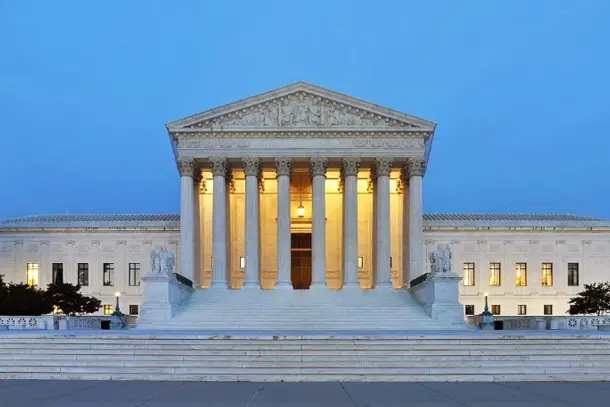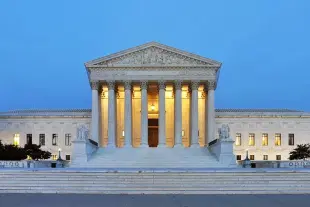World
After Legal Setback On Sweeping Global Tariffs, Trump Takes Fight To US Supreme Court
Swarajya Staff
Sep 04, 2025, 12:30 PM | Updated 12:30 PM IST
Save & read from anywhere!
Bookmark stories for easy access on any device or the Swarajya app.


The Trump administration has asked the US Supreme Court to swiftly decide whether the president has the authority to impose sweeping tariffs under emergency law, setting up a battle that could directly affect billions of dollars’ worth of Indian exports to the United States
The appeal comes after a 7-4 ruling by a US federal appeals court that found most of the tariffs unlawful under the 1977 International Emergency Economic Powers Act, though it allowed them to remain in force while the case is decided in the US Supreme Court.
For India, the outcome carries immediate stakes. In August, Washington imposed duties of up to 50 percent on a wide range of Indian goods, including a 25 per cent levy citing New Delhi’s continued purchase of Russian crude oil despite Western sanctions.
Indian officials have described the measures as “unjust and unfair,” noting that other major buyers of Russian oil have not faced similar penalties.
American states and business groups have also challenged the duties imposed by Trump administration, arguing they are both unlawful and economically destructive.
“These unlawful tariffs are inflicting serious harm on small businesses and jeopardizing their survival,” Jeffrey Schwab, an attorney with the Liberty Justice Center was quoted as saying by Fox News.
The Trump administration countered that striking them down would weaken US leverage in foreign negotiations, highlighting that the tariffs have generated $159 billion since late August, more than double the previous year.
Although tariff-setting powers rest with Congress under the US Constitution, lawmakers have long delegated broad discretion to the executive branch.
Trump has stretched that authority further than most predecessors, turning tariffs into a diplomatic weapon as much as an economic one.
Many of Trump's earlier duties on China during his first term on steel and automobiles were retained by Joe Biden, but the current dispute zeroes in on whether emergency powers can be invoked to expand tariffs so widely.
For India, the US Supreme Court’s eventual ruling could determine whether the present duties prove to be a temporary shock or a lasting structural burden.
A decision striking down the use of the 1977 law might give Indian exporters a chance at relief, though the administration is already weighing alternate legal paths, such as the 1962 Trade Expansion Act, to preserve its tariff authority.
The US Supreme Court justices are expected to decide soon whether to hear the case directly.
Please click here to add Swarajya as your preferred and trusted news source on Google




